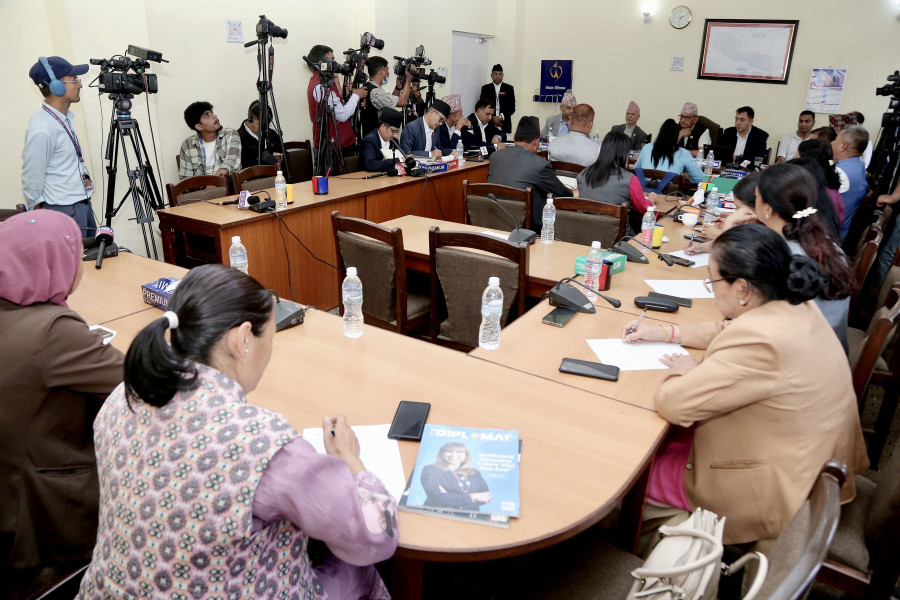National
Government yet again misses self-imposed deadline to settle school education bill disputes
Education Minister Raghuji Pant on July 6 sought five days to discuss issues with the teachers’ federation, but has now requested an additional week to endorse the bill.
Post Report
After pushing the endorsement of the School Education Bill three times, the government wants to prolong it further.
A meeting of the Education, Health and Information Technology Committee of the House of Representatives called for July 6 to endorse the bill.
However, the meeting was deferred after Minister for Education, Science and Technology Raghuji Pant, backed by Nepali Congress Chief Whip Shyam Ghimire, proposed putting the bill on hold for five days to discuss issues with the Nepal Teachers’ Federation.
The committee agreed to give until Friday to settle the contentious issues with the federation. It was the third time the House committee agreed to defer the endorsement process at the government’s request. As the deadline passed, the education minister has, yet again, sought a week’s time for the panel to endorse the bill.
“I have been asked to defer the meeting by a week and go to my constituency if I like,” said Ammar Bahadur Thapa, chair of the committee. “I am fully against deferring [the process] even by a single day. I will hold consultation with committee members on Sunday because I cannot decide alone.”
Thapa says his plan is to hold final discussions on Monday and put the bill to a vote. “However, we cannot discuss the bill if the education minister remains absent. Let's see how things go forward,” he added.
While the government wants to push back the bill, the opposition and even some ruling party lawmakers are against its deferral. Rekha Sharma and Devendra Paudel, both CPN (Maoist Centre) lawmakers and former ministers, strongly spoke on July 6 against delaying the endorsement. Even CPN-UML lawmaker Bidya Bhattarai, who is the immediate past education minister, wanted the bill to get endorsed.
Thapa said attempts are being made to cast a shadow of the executive on the committee. He further claimed that the teachers’ federation is exerting pressure on the government to address all its demands and the government wants the committee to do the same.
The committee is independent on which demands to embrace and which ones to reject, he said. “I am not going to alter the core agreements reached at our subcommittee.”
Frequent postponements of the committee’s meetings have led the committee to miss the deadline for endorsing the bill.
Ghimire and UML chief whip Mahesh Bartaula in March had agreed in writing to a June 29 deadline to get the bill endorsed from the lower house. With the deadline missed, the federation has been warning against further delay in its endorsement.
If the claim of the committee chair is anything to go by, most of the demands of teachers, except those relating to promotion, have been addressed in the bill.
The subcommittee led by UML lawmaker Chhabilal Bishwakarma had agreed that third-class teachers would be eligible for periodic promotion after 10 years of service, and second-class teachers after 12 years. The sub-committee had also agreed that only those who have scored 90 marks in the evaluation would be eligible for promotion.
The federation has been pressured to remove the scoring requirement.
After regular discussions for over a month, the Bishwakarma-led committee had found agreements in more than 1,700 amendments proposed to the bill, several of which were mutually contradictory. However, the government, on the federation’s pressure, had altered many of them.
The school education bill is among the bills most crucial for full-fledged implementation of the Constitution of Nepal, the decade-old charter that devolves many powers to the local government.




 10.12°C Kathmandu
10.12°C Kathmandu














